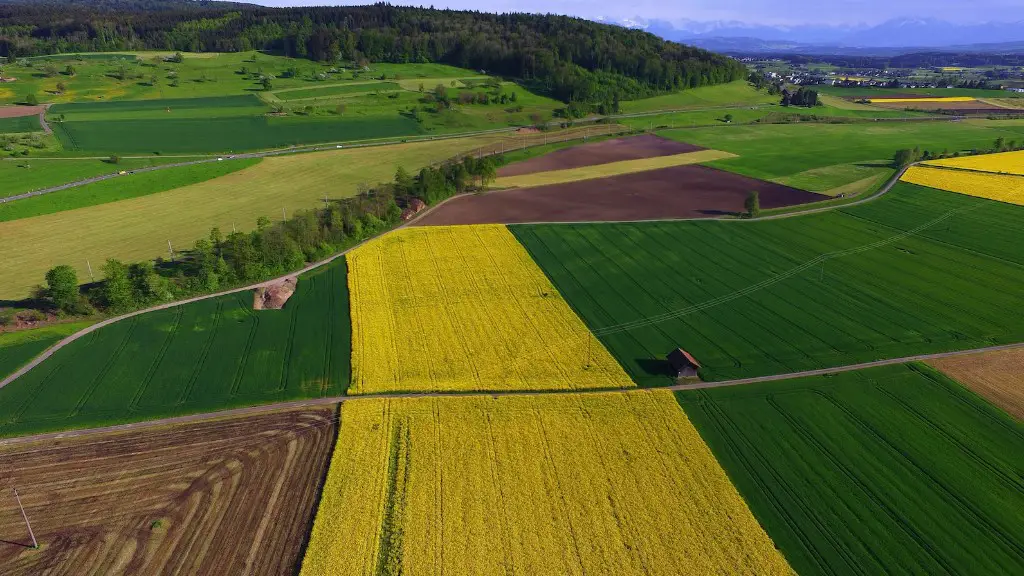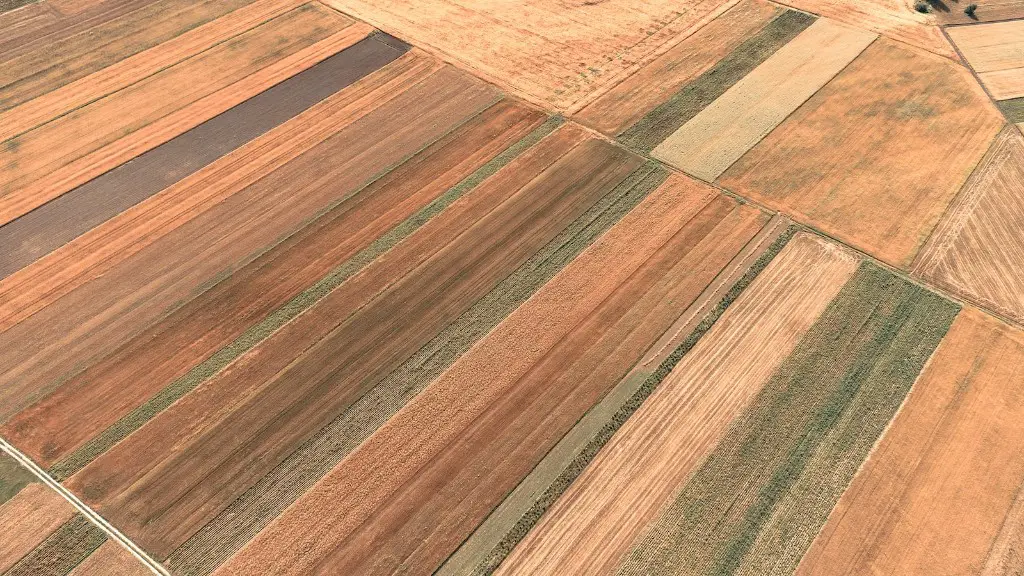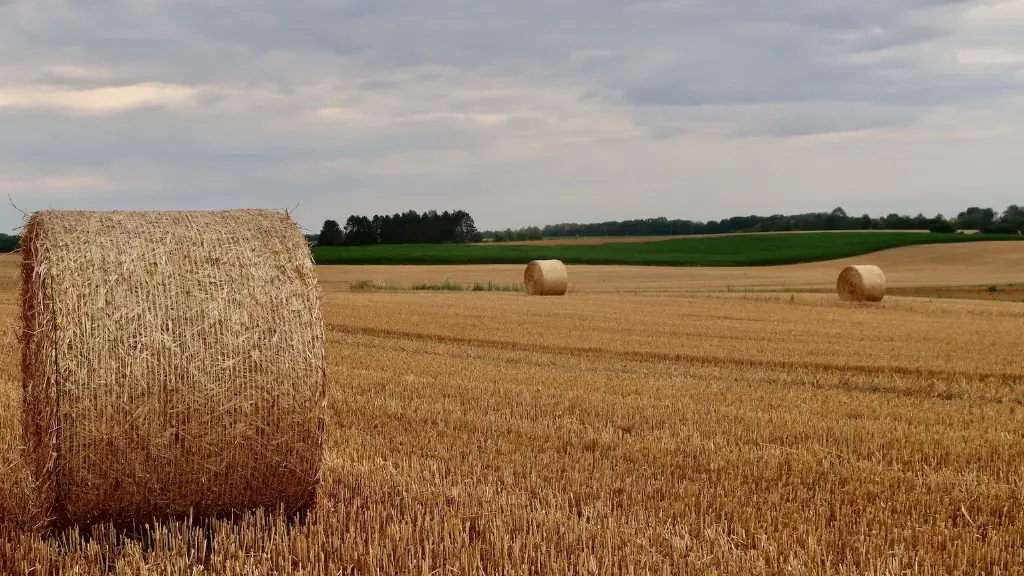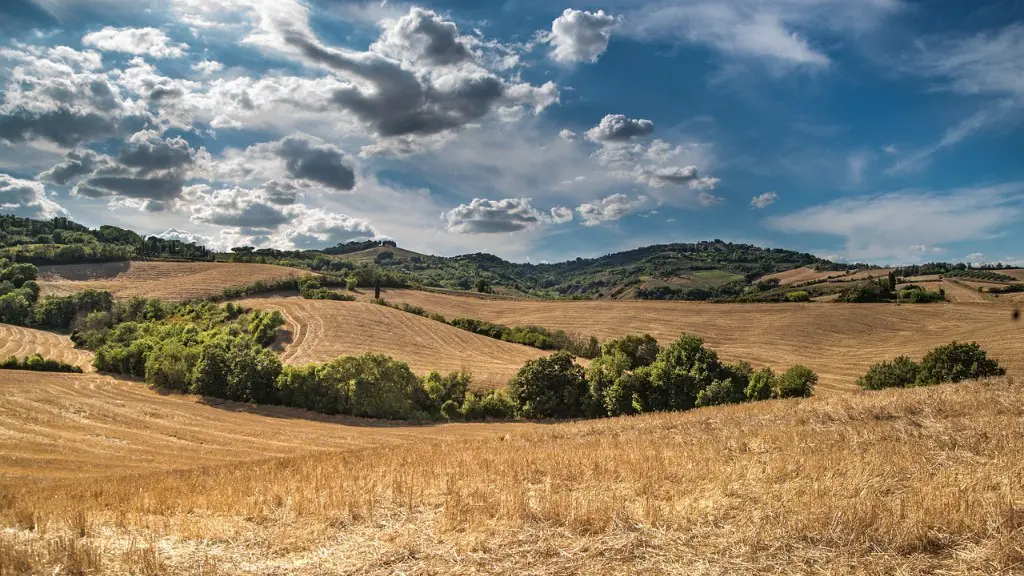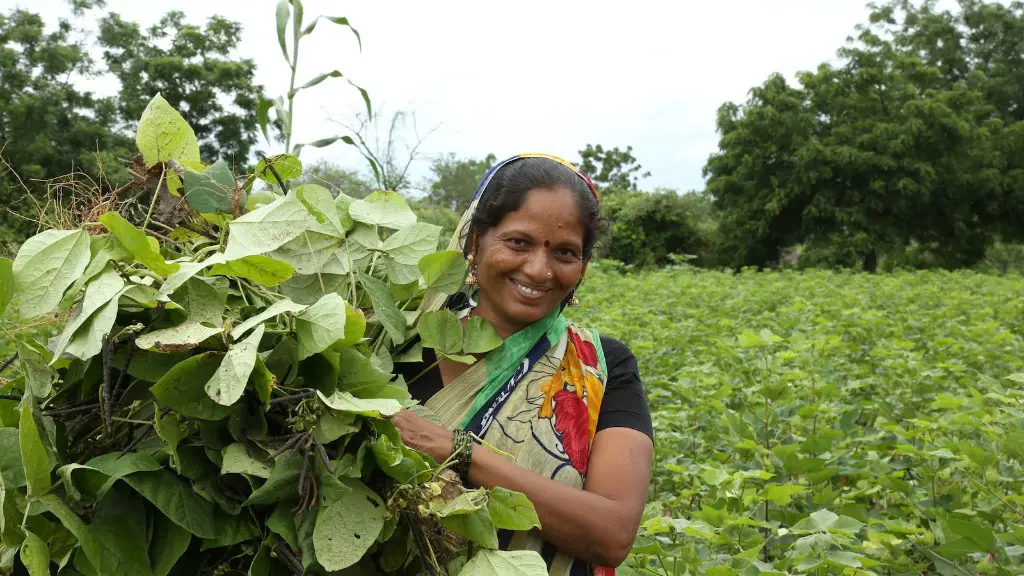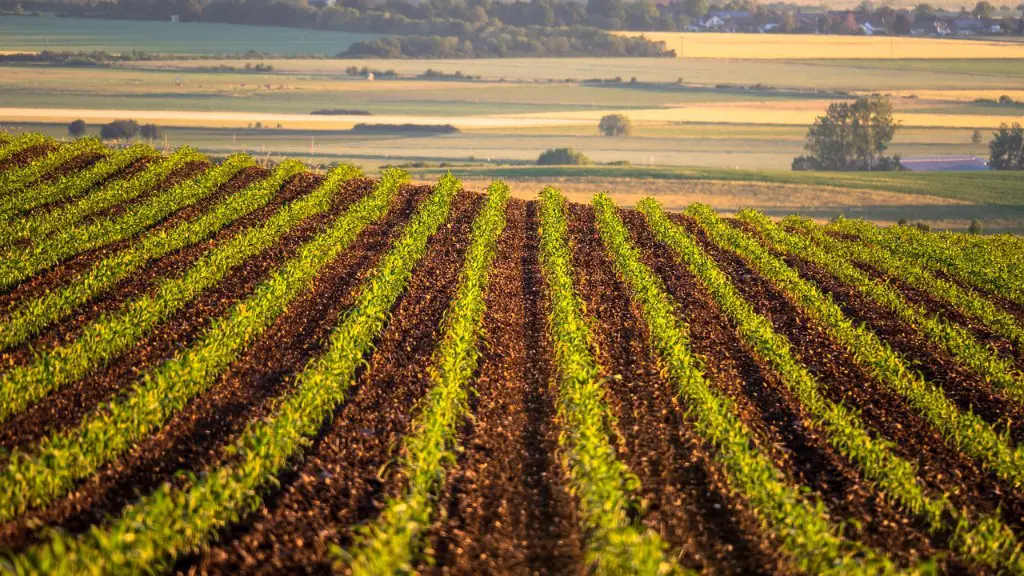The disadvantages of agriculture are that it can lead to soil erosion, it can require large amounts of water, and it can have a negative impact on the environment.
There are a few disadvantages to agriculture. The first is that it can be very labor intensive, and requires a lot of time and effort to maintain. Secondly, it can be harmful to the environment if not managed correctly, as it can lead to soil erosion and water pollution. Finally, agriculture can be susceptible to weather conditions and pests, which can damage crops and lead to financial losses.
What is the disadvantage of agriculture?
Agriculture is the leading source of pollution in many countries. Pesticides, fertilizers and other toxic farm chemicals can poison fresh water, marine ecosystems, air and soil. They also can remain in the environment for generations.
Toxic farm chemicals are one of the leading sources of pollution in many countries. They can poison fresh water, marine ecosystems, air and soil. They also can remain in the environment for generations.
We need to find ways to reduce the use of toxic farm chemicals. We need to find safer alternatives to these chemicals. We also need to educate farmers on the proper use of these chemicals.
Agriculture has a significant impact on the environment. Five of the most significant environmental effects of agriculture are soil fertility loss, eutrophication of water bodies, deforestation, climate change and pesticide pollution.
Soil fertility loss is a major environmental effect of agriculture. Soil fertility is essential for plant growth, and loss of soil fertility can lead to reduced crop yields and increased soil erosion. Eutrophication of water bodies is another significant environmental effect of agriculture. Eutrophication occurs when water bodies are overloaded with nutrients, typically from agricultural runoff. This can lead to algal blooms and water pollution. Deforestation is another environmental effect of agriculture. Deforestation occurs when trees are cleared to make way for farmland. This can lead to loss of habitat for wildlife, soil erosion and climate change. Climate change is another significant environmental effect of agriculture. Agriculture contributes to greenhouse gas emissions, which are a major cause of climate change. Pesticide pollution is another environmental effect of agriculture. Pesticides can pollute air, water and soil, and can also be harmful to human health.
What are the biggest problems in agriculture
Farmers have to deal with a lot of different environmental factors that can impact their business in any given year. Soil quality, water quality, climate, and terrain are just a few of the things that can affect how successful a farmer is. This means that farmers have to be extra careful about managing their resources and being prepared for anything that Mother Nature might throw their way.
There are both advantages and disadvantages to having a controllable food supply. On the one hand, you might have droughts or floods, but if you’re growing the crops and breeding them to be hardier, you have a better chance of not starving. On the other hand, in order to keep feeding people as the population grows you have to radically change the environment of the planet.
What are 3 effects of agriculture?
While the development of agriculture in a region has many positive effects, there are also some negative effects that should not be ignored. Inorganic nitrate pollution, pesticide pollution and salinity problems can all lead to environmental degradation, especially in regions where agriculture is intensive.
Animal agriculture is one of the leading causes of environmental degradation. Animal agriculture, in particular meat production, can cause pollution, greenhouse gas emissions, biodiversity loss, disease, and significant consumption of land, food, and water. Animal agriculture is a major contributor to climate change, as it is responsible for 14.5% of global greenhouse gas emissions. In addition, animal agriculture is a major cause of water pollution and consumption. It is estimated that animal agriculture is responsible for up to 70% of global water consumption. Animal agriculture also causes significant loss of biodiversity, as it is responsible for the loss of habitat for many animals. Finally, animal agriculture can lead to the spread of disease, as it is often the source of new and emerging diseases.
What are two negative effects of agriculture?
There are a few problems with large-scale, conventional farming. First, it focus on intensive single crop production, which can lead to problems with pests and disease. Second, it is heavily dependent on fossil fuels, pesticides, antibiotics, and synthetic fertilizers, which can pollute the air and water and deplete the soil. Finally, this type of farming contributes to climate change.
Organic farming is a more environmentally sustainable option than conventional agriculture. It causes less greenhouse gas emissions, soil erosion, and water pollution, and does not use toxic pesticides that can threaten human health.
How does agriculture affect human life
Agriculture is absolutely essential to society. It provides not only food for people to live, but also habitat and jobs. Agriculture also provides raw materials for many products we use in our everyday lives. Moreover, agriculture is a key driver of economic growth, both in developed and developing countries.
Farming allowed humans to store food and create concentrated food sources, which led to the formation of deep class divisions. Hunter-gatherers have little or no stored food and no concentrated food sources, so they must live off the wild plants and animals they obtain each day. This way of life leads to a more equal distribution of resources, since everyone must obtain their own food. However, once farming was introduced, some people were able to store much more food than they needed, while others had difficulty getting enough to eat. This led to the formation of social classes, with those who had access to food and resources becoming the elite, and the poor becoming increasingly marginalized.
What is a current issue with agriculture?
The high cost of fuel severely impacted farmers and ranchers, especially as they navigated the fall harvest season. The cost of fertilizer increased by more than 60% from 2021 to 2022, putting even more pressure on farmers who were already struggling to make ends meet. This is a serious problem that needs to be addressed, as the high cost of inputs is making it increasingly difficult for farmers to produce food and other crops.
There is no doubt that modern agriculture has had a negative impact on the environment. Soil degradation, water pollution, and greenhouse gas emissions are all major problems that can be directly linked to agricultural practices. While there is still much debate over the best way to address these issues, it is clear that something needs to be done in order to protect our environment from further damage.
What is the disadvantage of modern agriculture
Modern farming methods have several disadvantages that have had negative impacts on the environment and natural resources. These methods have overused the natural resource base, including water resources, leading to depletion. They have also led to loss of soil fertility due to increased use of fertilizers. In addition, modern farming methods require a great deal of capital, which can be a barrier to entry for small farmers.
Most of the agricultural wastes generated is disposed by incineration, burning at the site or digging back to the soil. Due to these reasons, environmental pollution increases and it creates a hazardous impact on human beings.
What are 3 challenges facing agriculture in the future?
The three primary issues facing farmers and livestock producers across the country are agricultural trade, tax reform and the new farm bill. All of these issues are extremely important to the agricultural industry, and there is a lot of uncertainty surrounding them. Agricultural trade is a huge issue, as farmers need to be able to export their products in order to stay afloat. Tax reform is also a big issue, as the current tax system is very complex andDemocratic Senators Farmers face an uncertain future many farmers are struggling to make ends meet. The new farm bill is also a major issue, as it could have a huge impact on the way that farmers operate. It is important for the agricultural industry to keep a close eye on these three issues, as they could have a major impact on the future of farming.
One of the problems with traditional farming methods is that they are not accessible to the greater public. This is due to urbanization, deforestation, lack of space, and water shortages around the world. Traditional farming methods also pose a risk to the environment.
What are the negative effects of farming in soil
Silvia makes a great point that many of the practices associated with intensive agriculture can lead to soil degradation and the loss of important nutrients. Intensive farming practices can disrupt natural cycles, causing erosion and loss of fertility. These practices can also cause a decline in soil organic matter, leading to poorer soils and reduced crop yields.
The industrial agriculture system is not sustainable. It consumes fossil fuel, water, and topsoil at unsustainable rates and contributes to numerous forms of environmental degradation, including air and water pollution, soil depletion, diminishing biodiversity, and fish die-offs.
Warp Up
Some disadvantages of agriculture are that it can be very labor-intensive, and it can be difficult to get started without a lot of experience or capital. Additionally, agriculture can be vulnerable to weather conditions and pests, which can lead to crop loss and financial problems for farmers.
One disadvantage of agriculture is that it can lead to environmental problems. For example, agriculture can lead to soil erosion and water pollution. Additionally, agriculture can be a source of greenhouse gas emissions. Another disadvantage of agriculture is that it can be a water-intensive activity, which can lead to water shortages in areas where agriculture is practiced.
